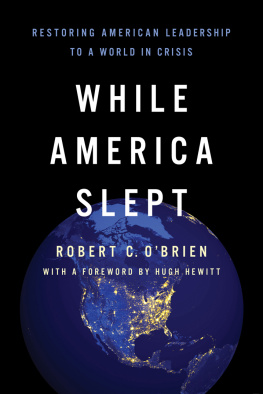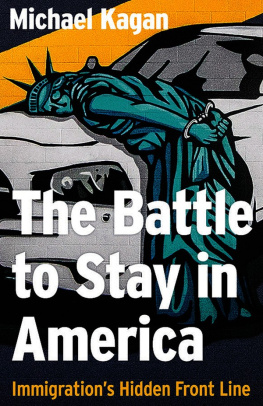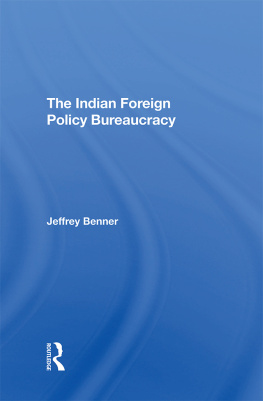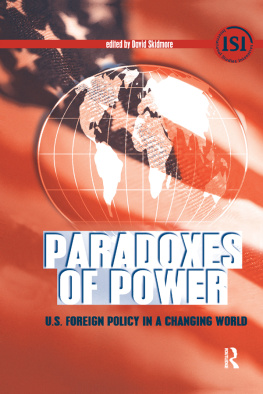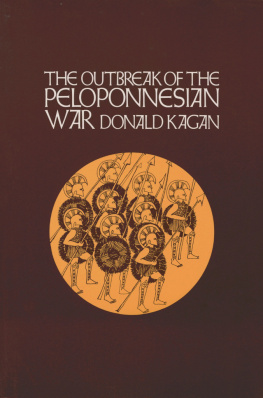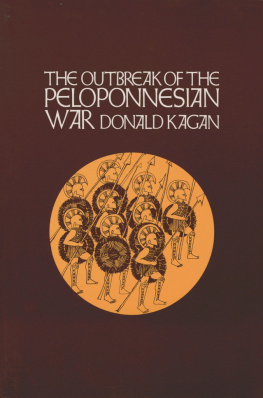Present Dangers

Copyright 2000 by Robert Kagan and William Kristol
All rights reserved. No part of this publication may be reproduced, stored in a retrieval system, or transmitted, in any form or by any means, electronic, mechanical, photocopying, recording, or otherwise, without the prior written permission of Encounter Books, 900 Broadway, Suite 601, New York, New York 10003.
First paperback edition published in 2000 by Encounter Books, an activity of Encounter for Culture and Education, Inc., a nonprofit tax exempt corporation.
Encounter Books website address: www.encounterbooks.com
The paper used in this publication meets the minimum requirements of ANSI/NISO Z39.48-1992 (R 1997) (Permanence of Paper).
Library of Congress Cataloging-in-Publication Data
Kagan, Robert.
Present dangers : crisis and opportunity in American foreign and defense policy.
p. cm.
Includes bibliographic references and index.
ISBN: 978-1-89355-416-0
1. United StateForeign relations1989Philosophy. 2. United StatesMilitary policyPhilosophy. I. Kristol, William. II. Title.
E840.K316 2000
327.7dc21
00-034728
10 9 8 7 6 5 4 3 2 1
Contents
T his book is an outgrowth of an article we published in Foreign Affairs in 1996, Toward a Neo-Reaganite Foreign Policy. We warned there of the growing threats to the American peace established at the end of the Cold War, and called for a foreign policy of benevolent hegemony as a way of securing that peace and advancing American interests and principles around the world. The article sparked controversy in the United States and abroad, and the question of American hegemony has become a principal focus of the foreign policy debate.
Events of recent years have given us no reason to change our fundamental view either of the emerging dangers or of the prescriptions for meeting these dangers. If anything, the trend of the past few years has proven more troubling than we anticipated. The emergence of China as a strong, determined, and potentially hostile power; the troubling direction of political developments in Russia; the continuing threat posed by aggressive dictatorships in Iraq, Serbia, and North Korea; the increasingly alarming decline in American military capabilitiesall these and more suggest that the coming years may be critical in determining the fate of international peace and of the American hegemony on which that peace depends. The aim of this collection of essays is to provide a survey of these many dangers and to offer recommendations to American policy-makers on how to meet and overcome the challenges we face in the world.
As the reader will see, the authors in this book include some of Americas leading foreign policy thinkers and practitioners of the past two decades. Paul Wolfowitz, Richard Perle, William Schneider, Elliott Abrams, and Peter Rodman have served at the highest levels of government. William Bennett, former secretary of education and drug czar, has been a leading commentator on the role of morality in American society and politics. Donald Kagan, Aaron Friedberg, and Nicholas Eberstadt are leading authorities in their respective academic fields. It is fair to say that all are conservative in their outlook. But what distinguishes them is that they are all conservative internationalists, with a strong commitment to vigorous American global leadership, to American power, and to the advancement of American democratic and free-market principles abroad. In this sense, they are the true heirs to a tradition in American foreign policy that runs at least from Theodore Roosevelt through Ronald Reagan.
The topics covered in these essays range across several broad themes. In our introductory essay, we argue that the world has, indeed, become a more perilous place after the squandered decade of the 1990s and that the present danger lies in Americas hesitancy in maintaining its global hegemony against the many emerging challenges. James Ceasar then takes a broad look at the foreign policy debates of the past decade, and especially the debates among conservatives, offering an important analysis of what modern conservative internationalism is and is not.
Part Two deals with the main threats to American peace in the coming decade. First, Ross Munro and Peter Rodman address the challenges likely to be posed by two world powers, China and Russia. Munro contends that China is fast emerging as the greatest threat to American interests and that a serious conflict with China may come sooner than many would like to believe. Rodman argues that Russian leaders are moving toward a new realism in their foreign policy, one that offers both dangers and opportunities for the United States. The next three chapters consider the problem of rogue states. Richard Perle warns that Saddam Hussein is on the verge of breaking free from the international constraints imposed on him at the end of the Gulf War, and that unless a concerted effort is made to remove him from power he will soon acquire weapons of mass destruction and fundamentally alter the strategic balance in the Middle East. Reuel Marc Gerecht cautions that the Iranian regime is not necessarily moving in a moderate direction, as many assume, and will continue to pose serious problems as a supporter of terrorism, a destabilizing influence in the Middle East, and a potential nuclear power. Nicholas Eberstadt argues that North Korea remains very dangerous and will remain so until the present regime in Pyongyang falls.
Part Three looks at Americas resources for meeting these challenges: its allies and its military assets. Jeffrey Gedmin and Aaron Friedberg both discuss the question of Americas alliances with the worlds other great powers, in Europe and East Asia, arguing that these alliances, cornerstones of American leadership, have fallen into disrepair. Elliott Abrams describes the faulty logic that has driven American policy toward the Middle East for more than a decade, warning that the security of Israel, Turkey, and American friends in the Arab world may be jeopardized unless the United States shifts its focus toward strengthening friends and consolidating American influence in the region. The next two chapters assess the growing deficiencies in Americas military capabilities as global threats multiply. Frederick Kagan provides an account of the reduction in the armed forces since the Gulf War and demonstrates that cuts in the defense budget have been driven not by a coherent strategy but by the political need to offer Americans a postCold War peace dividend. William Schneider describes the breakdown of American efforts to prevent the proliferation of weapons of mass destruction and long-range missiles, as well as the disastrous inadequacy of American programs for building a missile defense system that can protect the United States, its troops stationed abroad, and its allies.
Part Four examines some broader issues of American foreign policy from a historical perspective. William Bennett makes a carefully reasoned defense of an American foreign policy based on principle, tracing the role of American principles in foreign policy from the Founding Fathers to the present. Paul Wolfowitz discusses the lost art of statesmanship and offers a long-time practitioners perspective on the challenges to American foreign policy today. Donald Kagan stresses the vital importance of national will in the successful deterrence of war, offering examples of both success and failure from the past four centuries of European and American history.
In choosing these authors, we sought to find individuals who shared a common perspective on Americas role in the world. We did not, however, insist on uniformity when it came to policy prescriptions. The reader may note that in the case of China, for instance, there is not complete agreement among Messrs. Wolfowitz, Friedman, and Munro on the exact policies to be pursued on such matters as Taiwan or trade. Rather than viewing this as a problem, we think it is healthy. Within the broad strategy of conservative internationalism there will be more than one set of tactics.
Next page

